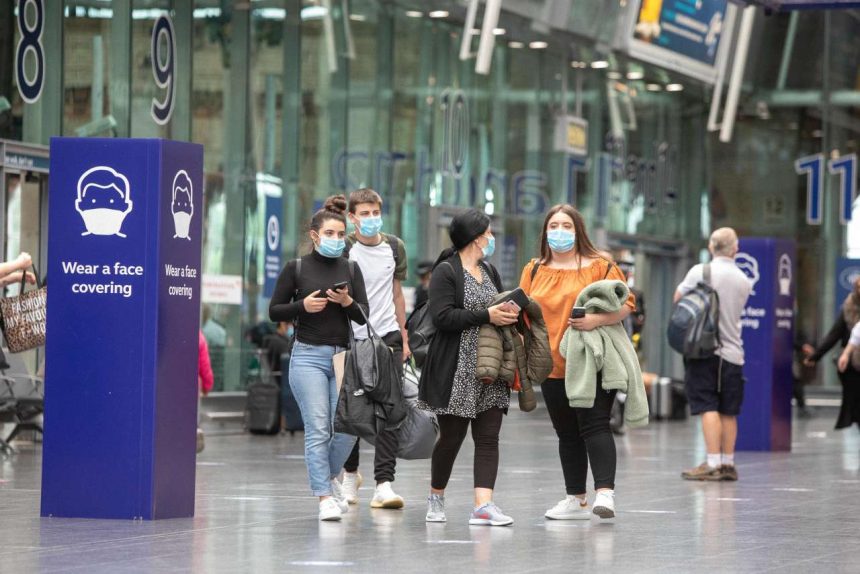The emergence of the Omicron coronavirus variant has resulted in fewer people travelling by train.
Provisional figures show that in the week to 9 December, daily rail journeys were an average of 55% pre-covid levels, which is down from 63% in the previous week and a high of 72% the week before that, to 25 November.
The first UK cases of Omicron were reported on 27 November. Since then, weekly train ticket sales have dropped from 68% of pre-pandemic levels to just 59% for the week ending 11th December.
On Monday, 13 December, the government issued work from home guidance in England. That led to many fewer people travelling, resulting in a 23% drop in revenue week on week. Also, the income from fares that day was 43% of pre-pandemic levels, down from 55% on Monday, 6 December, which is the lowest level on a Monday since the end of July, when the country first reopened after lockdown.
In the Spending Review, the government committed an extra £5.7 billion to keep essential rail services running over three years from 2022. That is in addition to over £15 billion that has already been committed during the pandemic. As the railway addresses the challenges faced after the pandemic and lays the foundations for future growth, it is striving to create a financially sustainable and more passenger-focussed future. This challenge has intensified as the number of Omicron cases increases.
To help people to travel with confidence, railway companies are continuing their enhanced cleaning regime, ensuring that trains are well ventilated, with eight out of ten carriages having systems that refresh the air every six to nine minutes, and providing improved information about how busy trains are so that people can avoid the busiest times.
Andy Bagnall, Director General at the Rail Delivery Group, said:
“Like many other parts of the economy, Omicron is dealing another blow to the rail industry, which has seen its finances decimated by the pandemic.
“The railway cannot take more than its fair share of support from the taxpayer which means changing to be more sustainable and customer-focussed. That will allow the railway to build back stronger for the country as we emerge from the pandemic.”
